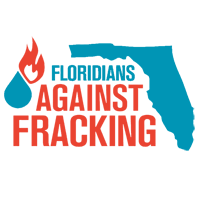All About Fracking
What Is Fracking?
Hydraulic fracturing is the process of injecting a mixture of more than a million gallons of water, sand, and chemicals under high pressure into rock formations. This process cracks the rock layer and releases natural gas. The concept of fracking has been around for decades, although large-scale-fracking is much more intensive and risky than conventional oil and gas drilling.
Fracking and other unconventional oil and gas extraction methods pose serious health and environmental risks to the state of Florida, including large portions of the Florida Everglades.
In Florida, other forms of fracking, such as well stimulation techniques called matrix acidizing, could occur as well, using the same dangerous chemicals. It has already happened in Florida at least once, but there is a large and dedicated group of people who want to make sure that it doesn’t happen again, and we need your help too!
Why is Fracking Dangerous?
- Hundreds of water contamination cases have been reported across the country.
- Studies have shown that Benzene, a carcinogen, contaminates aquifers, likely seeping from drilling and fracking waste pits.
- 75% of chemicals in fracking fluid cause skin, eye, and other sensory organs, respiratory, and gastrointestinal problems.
- 40-50% affects the brain/nervous system, immune, and cardiovascular systems.
- 1 to 8 million gallons of water is used per Frack. One well can take be Fracked up to 18 times.
- There is environmental disturbance from clearing land and drilling.
- Fracking forms ground level ozone, which can further combine with particulate matter to form smog.
- Exposure to smog is linked to cancer, cardiovascular disease, diabetes, premature birth, and cognitive deficits in children.
- Fracking increases seismic activity.
- Banks are unwilling to offer mortgages on properties with oil and gas leases. Therefore, property values decline.
Why is a Fracking Ban Important for Florida?
- According to a 2013 Oil and Gas Journal, the Sunniland Shale Basin is considered an overlooked oil resource. This Basin overlaps Everglades National Park.
- Within the past 2 years, more research has been conducted on the Sunniland Shale Basin than any other area in the fracking industry.
- Geo-hazards: geologic features that could allow for the upward migration of hydrocarbons & toxic fracturing fluids.
- Florida all limestone. Some Experts say natural gas below can be obtained without fracturing.
- Fracturing recently done illegally near Naples.
- Texas and Vermont banned fracturing outright, regulatory agencies in many other States.
- NY Gov banned fracking, citing health risks.
- In order to avoid fracking in Florida, you can take preventative action by being part of a statewide coalition. By doing so you will be able to educate, sign on to a letter to go to legislators and government, and identify key legislators.
